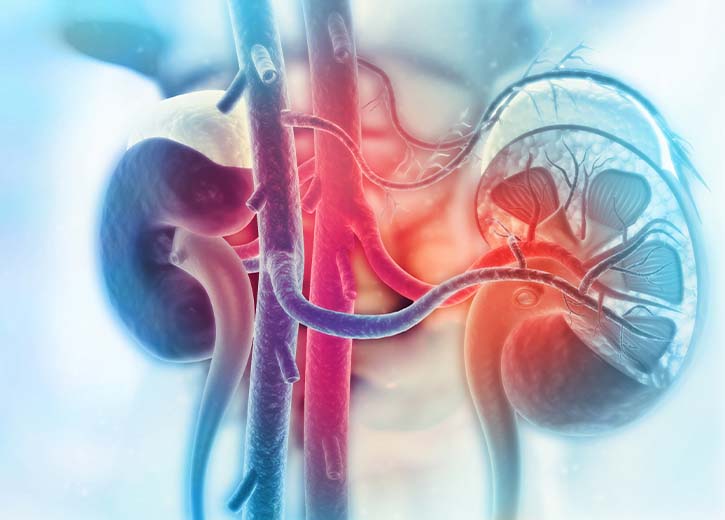Summer is a time for cool drinks, outdoor activities, and flip-flops. After months of layering to stay warm, the summer season feels like a fresh start. However, the scorching heat and stinky sweat are always accompanied by a slew of skin and health issues, one of which is kidney stone.
The cases of kidney stones increase as the weather warms. Every year, there is a 20% increase in the cases of kidney stones during the hot weather. If you're curious about the connection between the season and this disease, keep reading.
A brief on kidney stone:
Kidney stones are small crystals that form as a result of the hard deposition of minerals and salts in the kidney. These stones form when the concentration of crystal-forming substances in urine increases, allowing them to adhere together. Some of the common minerals that cause stone formation are amino acids, proteins, bicarbonate, calcium, phosphate, and potassium. The pain is only felt when the stone grows in size and shifts from its original position.
Kidney stones can be as small as a grain of sand or as big as a pea. The smaller stone, on the other hand, passes through the body unnoticed. If your kidney stones are moving, you may experience symptoms such as bloody urine, fever and chills, nausea and vomiting, and an insatiable desire to urinate.
Aster Hospitals is one of the best urology hospitals in Dubai.
Summer and kidney stones
Dehydration is the most common cause of kidney stones in the summer. As the temperature rises, we sweat more, resulting in fluid loss from the body. We need to drink more water to compensate for the fluid loss. Inadequate water intake can cause your body's fluids to become more concentrated with dietary minerals like calcium, increasing your risk of kidney stones. If you experience any symptoms related to kidney stones, visit the best urology doctor in Dubai.
Prevention
Making some healthy lifestyle changes is an easy way to prevent kidney stones.
Stay hydrated: Consume at least 2 to 3 litres of water per day. It is especially important for people who have a history of kidney stones, sweat a lot, or live in a hot or humid climate.
Consume more plant-based foods and less sodium: Use salt sparingly in your dish. Consume more plant-based protein foods such as legumes and seeds.
Avoid taking supplements: Avoid taking any kind of supplement, especially calcium supplements, without first consulting your doctor. Because 80 percent of kidney stones are calcium-based, this can increase your risk of developing kidney stones.
Magnesium prevents the formation of stones. It stops the spasm and not only relieves the pain quickly, but also aids in the removal of the stone.
Lemons: squeeze the juice of a fresh lemon and add a drop of therapeutic grade lemon essential oil to a glass of water and drink daily. If you or a loved one has a kidney stone, squeeze a fresh lemon into a glass of water and drink it every half hour until the pain subsides.



